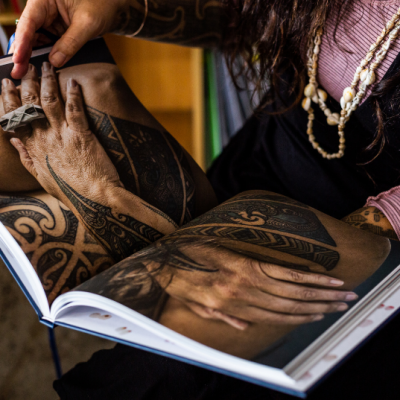Creative Patapatai
Special Studio‘s goal is simple: use waste plastic to make new things and clean up the planet. Studio owner Matt Watkins brings his most fundamental values to the work he does, locally manufacturing homeware objects using at least 98 per cent recycled plastic waste.
Your occupation, job title, artistic discipline (or very brief description of what you do):
I am a producer. I design, manufacture, and sell products including objects, hardware and software.
What cities/towns have you lived in (or spent more than a few months in) beginning with the place of your birth?
Hawkes Bay, Te Puke, Maketū, Mount Maunganui, Vancouver.
What are the earliest stories you remember hearing? The ones that told you about the world?
I guess the ones you see in movies and stories. The ones about over-coming adversity and reward if you solve a given problem.
Joseph Campbell is someone who has studied the archetypal stories that are ubiquitous throughout human culture. His work resonates with me. There seem to be a few distinct narratives that we all share culturally, similar stories and life experiences that we all can understand or empathise with.
I guess the moral of my story is, if I work hard and do my best, life continues to improve over time. So I keep doing that.

What’s your favourite Bay of Plenty landscape, park, building, location, suburb, or side street? Why?
Mount Drury, hands down. I spent my mid and late 20s living and working around Commons Ave and downtown at the Mount.
It’s such a special place and I have so many good memories of time spent hanging around on Mount Drury with friends, having a few drinks and just watching the sun go down.
What’s an average day in your life at present?
I spend a lot of my time working on Special Studio, either from home or at Basestation. I’ll normally start my day around 7 or 8 with a coffee before heading down to the studio. My time in the studio is split between running the 3D printers to make sure everything is printing correctly and refining the print quality. Then I’ll pack-up and ship orders. Due to the automation of 3D printing, I can be doubly productive, so when I am not printing or packing orders in the studio, I’ll spend time on the business working from home. It’s a mix of business admin, content generation, web and graphic design, and a bit of social media.
When I have a spare hour or two I will either recycle plastic or refine our systems while also doing research and development on new materials, objects, or product lines.
Sometimes I try to take the afternoon off and go to Moa Park with my dog Ralph or go for a surf or to the gym before spending the evening with family and friends.
I normally head back into the studio in the late evenings and often work until midnight depending on the print schedule.
I try to take Sundays off.
What music was present and still memorable from your youth/adolescence?
Having been a DJ, my music taste is fairly broad.
In my teens I listened to a lot of alternative rock, like Fall Out Boy, Sum 41, Rage Against The Machine, but my favourite band was Incubus. I also listened to lot of 90s and 2000s hip hop, Jay Z (particularly the Black Album), 50 Cent, Nelly – mostly mainstream stuff.
I went through a few phases of listening to surf tunes like Ben Harper and Jack Johnson.
Later in life I listen to a lot of Drake, Future, and Party Next Door.
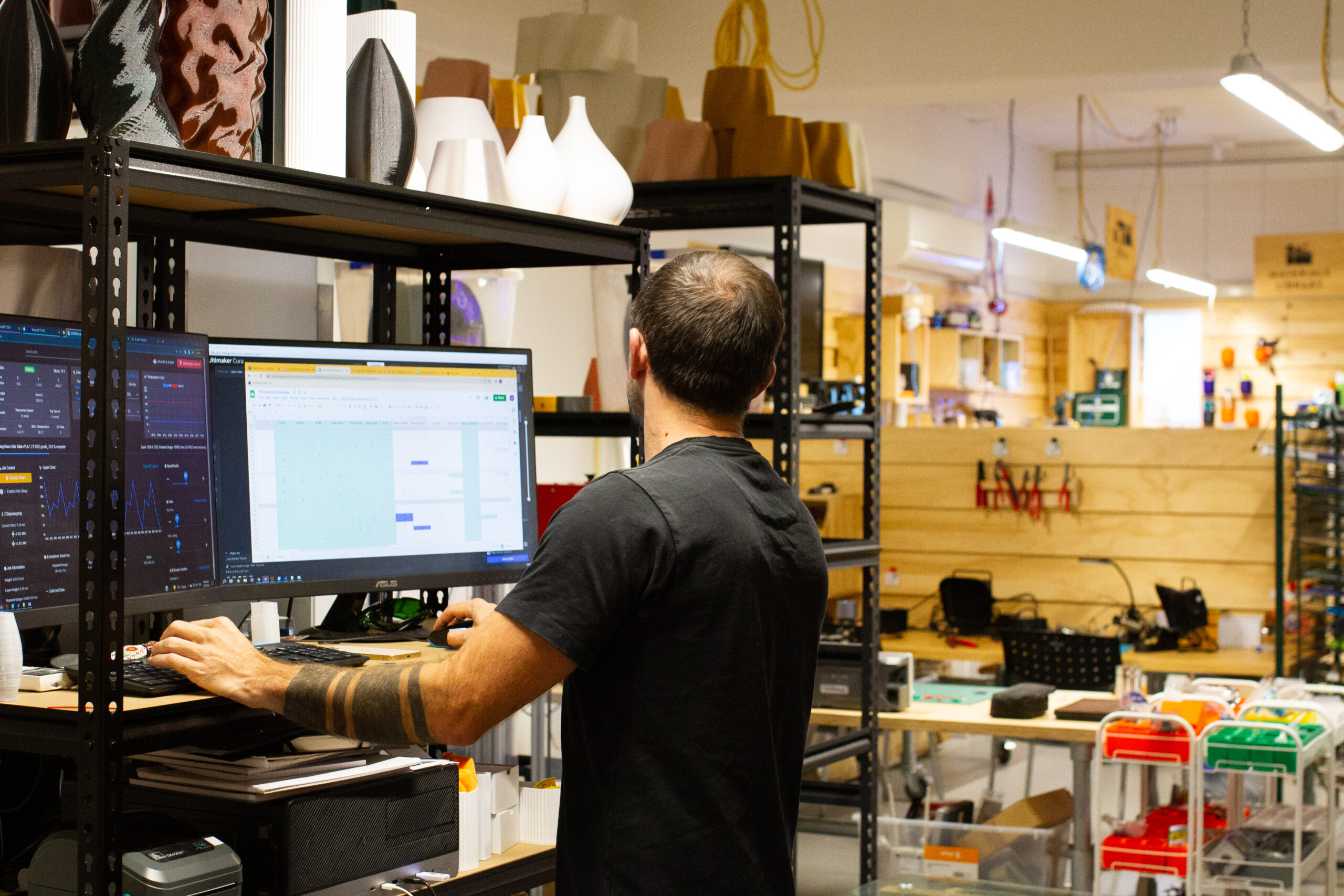
For you as a creative person, who are three influential artists or thinkers?
From a creative standpoint I would say my friend Haidon Evans. He is probably one of the most influential people in my life. He really helped me understand what it means to be truly authentic and to always be true and honest, no matter what.
In terms of well-known people: Yuval Noah Harari, Ray Dalio and Gucci Mane are probably the most influential.
I think everyone should read Gucci Mane’s autobiography, even if you haven’t heard of or don’t like his music. It’s a pretty raw but incredible story. Considering his journey and success, it’s hard to complain about life.
If you went away from the Bay of Plenty for a long time and then came back, what are the first three things you would do or visit?
There’s nothing better than coming home to NZ. It invokes an emotional and physical reaction.
It’s so sick.
Firstly, I’d get a coffee from Folk. There’s no better coffee in the world. Then I’d probably go get some food with friends, and go for a nice walk up the Mount.
Looking back at your teen-age self: what one sentence describes that person?
Confused and naïve, too sure of himself, and stubborn.
If you had to eat the same meal every day, what would it be?
Donburi.
What are you planning for 2022/2023 that nobody knows about yet?
We are in the early stages of planning to expand Special Studio overseas, probably to New York, LA, or Melbourne – possibly all three – with the aim to open at least one in the next six months.
I’m also working on a new range of products, which I am stoked about.
I’m heading to LA in a few weeks to show some products at a pop-up store in West Hollywood, so that should be an interesting experience.
Who are your favourite or most admired figures from history?
I’ve always been impressed by the early Polynesian explorers who managed to travel and settle in the Pacific. The skills they needed for navigation, sea ferrying and survival are super human.
If the Prime Minister asked you to make up a new policy or law for New Zealand, what would it be?
Increase general productivity and invest in localised manufacturing and reprocessing of products and materials.
I’d also try and improve government efficiency. There are a ton of resources that are misallocated or lost due to inefficiencies, and most government systems are awful to use, although that is improving.
This can be addressed by investing in education and training, as well as retaining or importing the best talent and human resources in a given field.
I think there is also too much reliance on co-investment and private funding in the grant process. Government funds should be available to anyone, not just those who already have significant spare capital. There needs to be more cash support for startups.
However, that’s all much easier said than done.
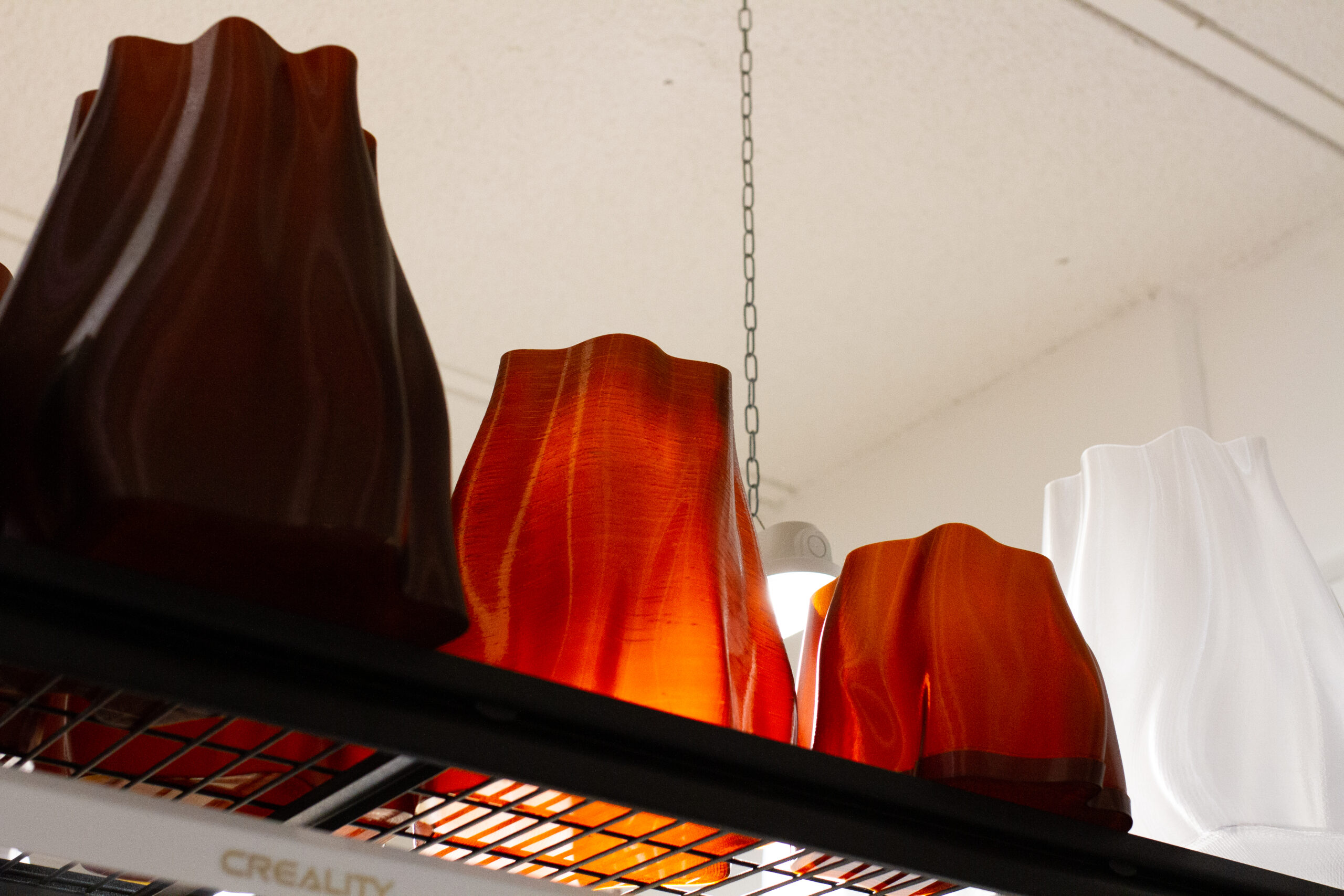
In one sentence, can you define art?
No.
What is missing or lacking from your Bay of Plenty community or environment?
Capital investment.
There is a lot of money in the Bay of Plenty, and there are lots of opportunities for that capital to be redistributed through investment in ways that would improve the lives of more people. Not just commercially, but also with culture, arts, and city life. These are all connected and investments in one area can lead to growth in others.
I feel like the CBD is making a bit of a comeback but there needs to be more people living there. It would be cool to see a few more taller buildings downtown and more restaurants, shops, and bars.
Adding a fast, lightweight electric rail service between the Mount, Papamoa and the CBD would also be ideal.
The Bay of Plenty is the best place in the world to live, period. But that doesn’t mean we should stop striving to be better and to build a new type of community.
Name a few films that you consider profound, moving or extraordinary?
Blade Runner 2049, Inception, The Matrix.
What was your first real job, second, third?
Sweeping a factory. Night fill at a department store. Apprentice cabinet maker.
Where would you like to live, but have yet to?
Maybe somewhere in the Mediterranean or New York.
What word of advice would you offer an aspiring creative person?
Trust your instincts and be confident.
First impressions are important but also perform iterations on your work – only a master succeeds first time.
Listen to feedback but remember it is only someone’s opinion.
Always consider the broader context.
“Always do what you should do.” – Nick Mason
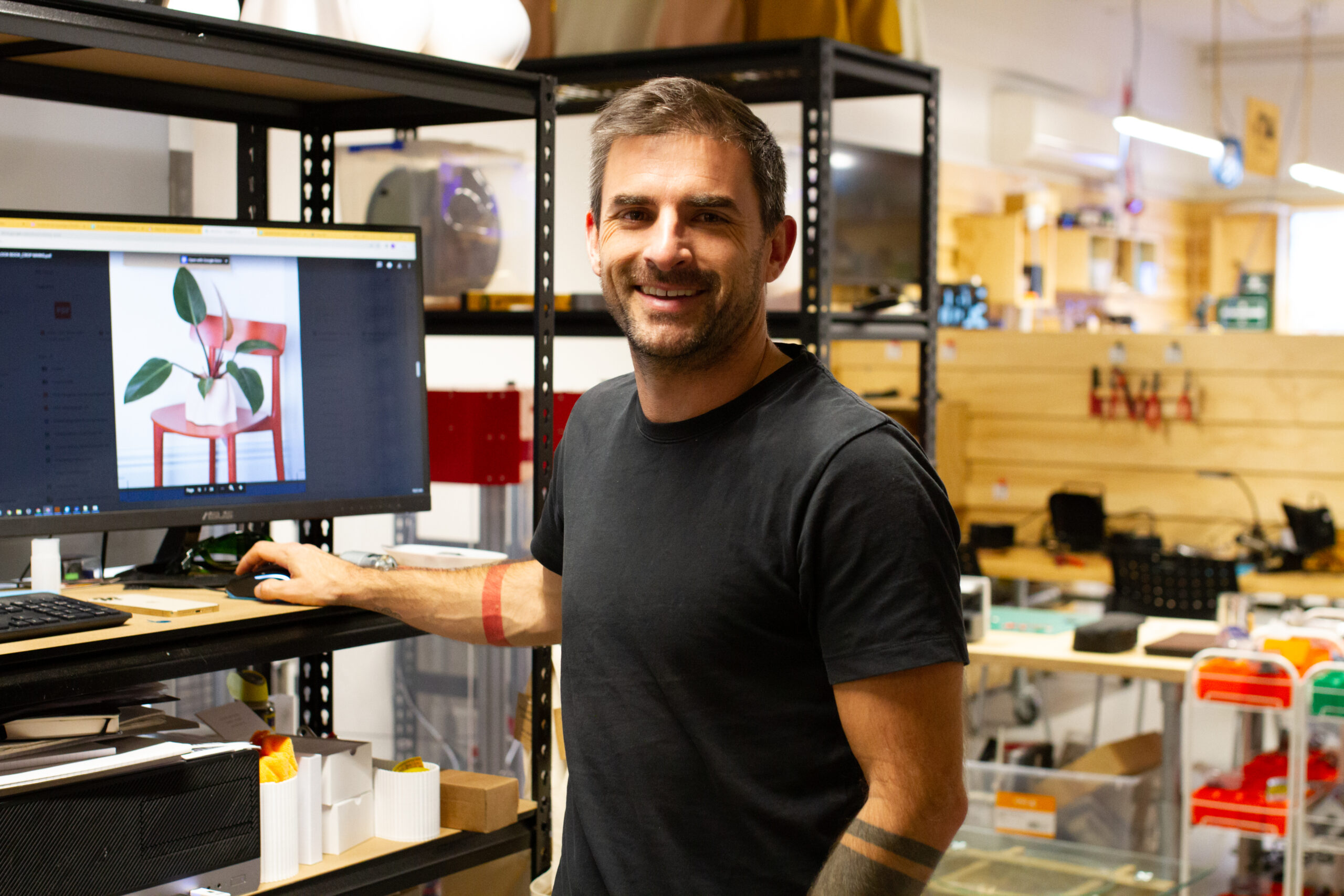
What’s the biggest problem about life in New Zealand? How you would solve it?
Distance. It’s our biggest expense and distance without self reliance isn’t sustainable. I think a possible solution is the creation of a Distributed Manufacturing Network paired with a high tech agile local R&D and manufacturing sector. Sustainability, material reclamation and recycling is an important part of this.
Being an island nation, we are in the unique position that shifting to a more circular economic model increases our sustainability while reducing costs and risk. There is no way we should be throwing away any imported material that we can’t easily mine or produce in New Zealand, like plastics or metals. Anything that can be recycled or made locally should be.
New Zealand also needs to reduce its reliance on imported goods and materials. This is especially true for the fundamental products and services that help to build a society including most consumer production.
I’m not suggesting we become isolationist but instead more productive, and more support should be given to local produces in the form of lower tax rates and capital to invest in productivity improvements.
At the same time, strengthening ties with international trading partners and investing in improved transportation systems is important. Elon has proven you can build highly automated production facilities at scale quickly, so there’s no reason we can’t achieve the same results at a state level.
New Zealand could develop industry-specific, automated manufacturing systems implemented locally, to increase our manufacturing independence and international competitiveness. These systems could then be deployed overseas forming a network of distributed production facilities that are able to manufacture New Zealand designed products in each market.
This “Designed in New Zealand – Made Locally” approach provides New Zealand-based companies the ability to weightlessly export manufactured goods to global markets, negating shipping cost and emissions.
Global markets are already digital and not bound by geography, while reliance on international supply chains is becoming risky and expensive. This isn’t applicable to all sectors but it could have broad effects.
We should be embracing new technology as long is it’s more efficient, sustainable, faster, or better. Ideally, all of the above.
New Zealand could be a leading provider of IP systems, services and raw materials for localised manufacturing, wherever in the world that might be.
What is your dream of happiness?
For others to be no less happy than I am.
Anything else you’d like to tell us about yourself/your organisation?
That’s it.
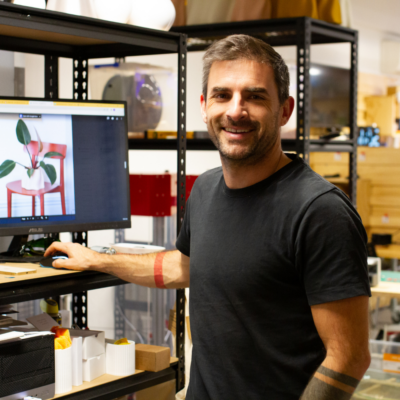
More about Matt
Visit Matt’s Creative Directory profile for more info
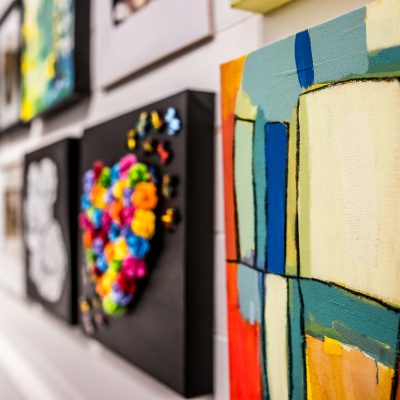
Creative Directory
Explore and connect with creative people, groups & spaces in Tauranga and Western BOP

